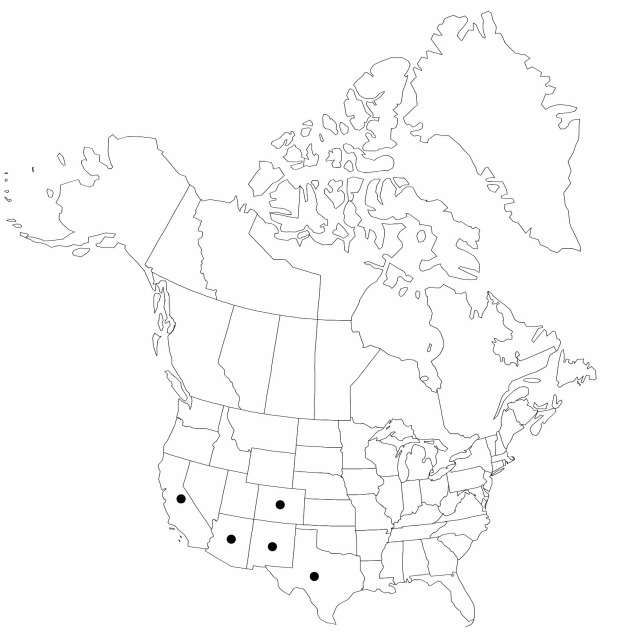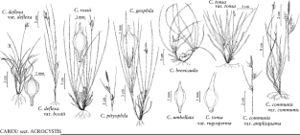Difference between revisions of "Carex geophila"
Bull. Torrey Bot. Club 40: 546. 1913.
FNA>Volume Importer |
imported>Volume Importer |
||
| Line 6: | Line 6: | ||
|place=40: 546. 1913 | |place=40: 546. 1913 | ||
|year=1913 | |year=1913 | ||
| + | }} | ||
| + | |special_status={{Treatment/ID/Special_status | ||
| + | |code=F | ||
| + | |label=Illustrated | ||
}} | }} | ||
|basionyms= | |basionyms= | ||
| Line 46: | Line 50: | ||
|publication title=Bull. Torrey Bot. Club | |publication title=Bull. Torrey Bot. Club | ||
|publication year=1913 | |publication year=1913 | ||
| − | |special status= | + | |special status=Illustrated |
| − | |source xml=https:// | + | |source xml=https://bibilujan@bitbucket.org/aafc-mbb/fna-data-curation.git/src/bb6b7e3a7de7d3b7888a1ad48c7fd8f5c722d8d6/coarse_grained_fna_xml/V23/V23_1008.xml |
|genus=Carex | |genus=Carex | ||
|section=Carex sect. Acrocystis | |section=Carex sect. Acrocystis | ||
Revision as of 21:30, 27 May 2020
Plants densely cespitose; rhizomes, horizontal to ascending, brown to reddish brown, 0–9 mm, slender. Culms 3–22 cm, strongly scabrous distally; bases (remnants of old leaves) fibrous. Leaf blades pale green, equaling or exceeding stems, 0.8–2.3 mm wide, coriaceous, glabrous abaxially, scabrous to papillose adaxially. Inflorescences with both staminate and pistillate spikes; peduncles of basal spikes stout, usually short, erect; peduncles of staminate spikes 1.1–8.8 mm; proximal nonbasal bracts scalelike, usually equaling or shorter than inflorescences. Spikes: proximal pistillate spikes 1–4 (basal spikes 1–2); cauline spikes overlapping or somewhat separated, with 5–15 perigynia; staminate spikes 6.9–16.9 × 1.4–2 mm. Scales: pistillate scales pale reddish brown with broad white margins, ovate, 3–4.3 × 1.5–1.8 mm, equaling perigynia, apex acute or cuspidate to acuminate; staminate scales lanceolate, 4.8–6.8 × 1.5–1.6 mm, apex acute to acuminate. Anthers 2–3.1 mm. Perigynia pale green to yellowish brown, veinless or faintly to 6-veined near base, globose to obovoid or ellipsoid, round in cross section, 2.7–4 × 1.5–2 mm; beak straight, pale green, not strongly 2-edged, 0.4–1 mm, ciliate-serrulate, apical teeth 0.2 mm. Stigmas 3. Achenes brown, globose to obovoid, round in cross section, 1.6–2.8 × 1.5–1.9 mm.
Phenology: Fruiting late Apr–late Jul.
Habitat: Dry to mesic, open or shaded sagebrush, pine, juniper, oak, and aspen woodlands, slopes, canyons, and outcrops
Elevation: 1200–3700 m
Distribution

Ariz., Calif., Colo., N.Mex., Tex., Mexico, Central America (Guatemala).
Discussion
A collection from the Sierra Nevada in California appears to be Carex geophila. This population, as well as those from the San Bernardino Mountains, tentatively assigned to C. pityophila, should be re-evaluated in a revision of the western montane taxa.
Immature plants of Carex lativena S. D. Jones & G. D. Jones (sect. Hallerianae) from Arizona and New Mexico have been misidentified as C. geophila.
Selected References
None.
